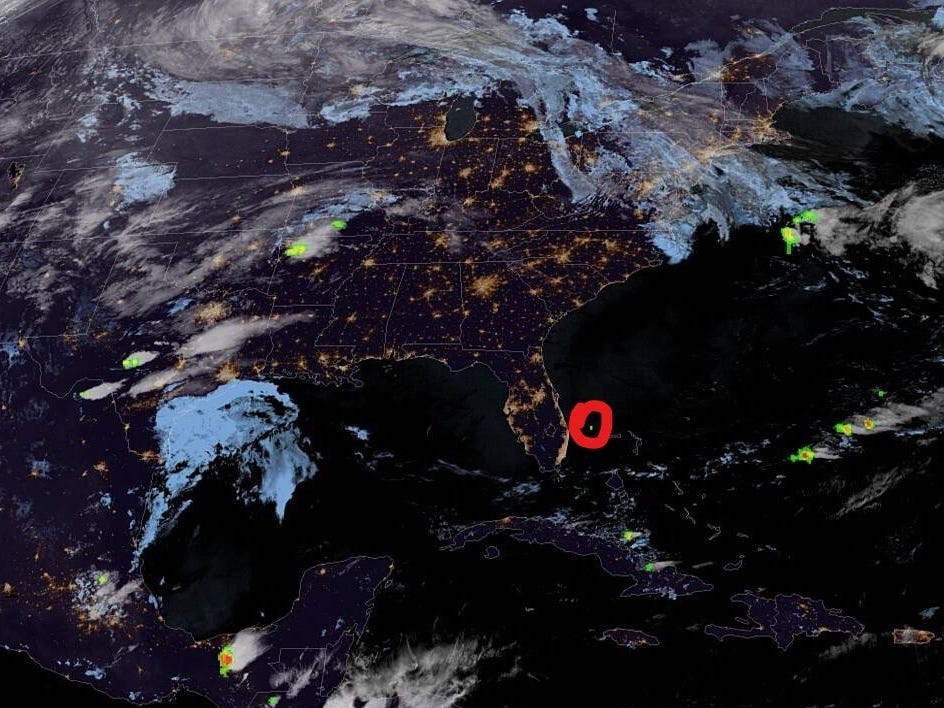
National Weather Service Tampa Bay
- Floridians were shocked to see a fireball shooting across the night sky.
- Videos showed a massive streak illuminating the sky for a second, then a flash of brilliant light.
- Scientists say it was likely a meteoroid – or space rock – due to pass by the earth.
- Visit Insider's homepage for more stories.
Some residents of Florida were shocked to see what looked like a great ball of fire streaking across the night sky – illuminating it for a second, in a flash of brilliant light.
According to the Washington Post, those living in the peninsula saw a bright flash that lit up the sky at around 10:18 pm on Monday.
While Floridians did not hear any sound from the meteor, the Post reported that some people in the Bahamas heard a sonic boom, accompanied by some vibration.
-m (@cbkcc1) April 13, 2021
The Reckoning, it wasn't. The American Meteor Society told the Post that it was likely a space rock that was passing by the earth. A fireball such as the one Floridian residents spotted could be classified as a very bright meteor.
Meteoroids – which are small space rocks that could be pieces of an asteroid or fragments of a comet – can enter the atmosphere at speeds up to 160,000 miles per hour, but start to burn up as the friction from the air drag produces massive amounts of heat energy. This sometimes leaves a trail similar to a lightning flash, like what was spotted over Florida on Monday night.
The International Meteor Organization describes fireballs as "meteors that appear brighter than normal," and said that they actually occur every day "all over the Earth" but usually go unnoticed in the daytime.
-Paul Dellegatto⚡️FOX (@PaulFox13) April 13, 2021
The National Weather Service in the Tampa Bay area managed to catch the fireball on its Geostationary Lightning Mapper - a satellite-based piece of technology that tracks lightning events - as it burned up off the Florida coast.
NPR wrote that scientists are currently arguing over whether the asteroid was "2021 GW4," a space rock that was scheduled to go past the Earth on Monday.